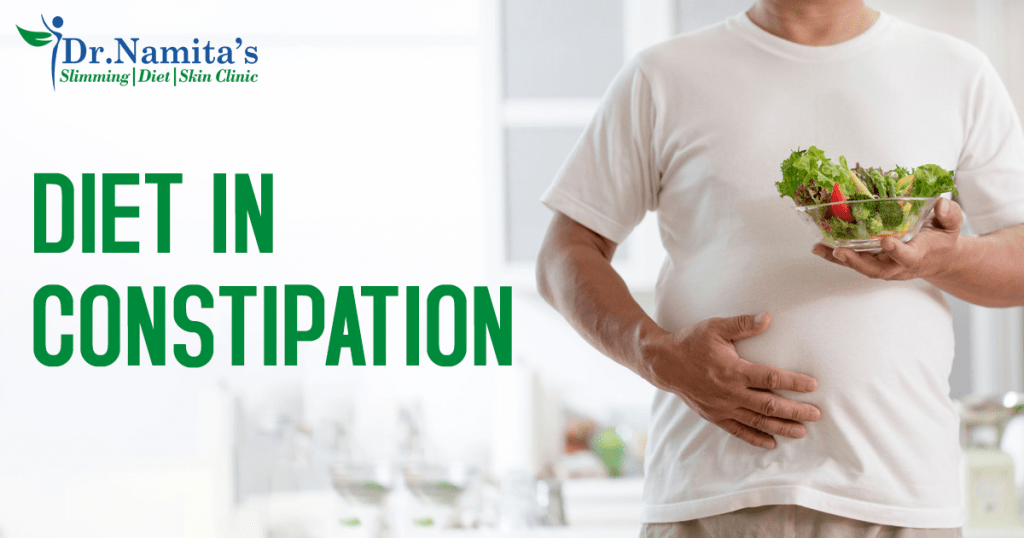Constipation occurs when a person has difficulty emptying the large bowel. Home remedies and lifestyle changes can often help resolve it, but in most cases, it does require medical attention. It is usually directly related to the diet and lifestyle of an individual, which can be corrected by a consultation with the best dietician.
Each individual has a different bowel habit, but usually, people having less than three bowel movements a week are constipated:
- Dissatisfaction with the bowel movements.
- Stoles that look like stones.
- Loss of appetite.
- Dry, hard, and lumpy stool.
Poor diet frequently causes constipation. Dietary fiber and adequate water intake are necessary to keep stools soft. Fiber-rich foods are usually plant-based, comes in soluble and insoluble forms. Soluble fiber can dissolve in water and create a soft, gel-like material as it passes through the digestive system.
Symptoms
Each individual’s bowel habits are very different. Some individuals go three times a day, while others go three times a week. It is recommended to visit a nutritionist if the symptoms don’t go away or if such things are noticed:
- Blood in stool.
- Pain in the lower back.
- Vomiting.
- Unexpected weight loss.
- Sudden change in bowel movements.
- Bleeding from rectum.
- Constant abdominal pain.
Healthcare experts may carry out the test to rule out a more comprehensive condition, such as colorectal cancer or irritable bowel syndrome(IBS).
Causes
The colon’s role is to absorb water from residual food as its passing through your digestive system. Poor diet frequently causes constipation, dietary fiber and adequate water intake are mandatory to keep the stool soft.
Stress, changes in routine, and conditions that slow muscle contractions of the colon or delay the urge to go may lead to constipation.
Common causes include:
- Dehydration
- Low exercise level.
- Delay in the urge to have a bowel.
- Travel or other changes in a routine.
- Life stages like older individuals and pregnant women.
- Overuse of laxatives.
Remedies
Fiber is that part of the plant which cannot be digested, and it serves in adding bulk and softness to the stools. There are mainly two types of fiber soluble and insoluble. Soluble fibers tend to absorb water and bind with fatty acids, to form a gel-like substance that keeps the stools soft.
On the other hand, insoluble fiber remains undissolved in water, hence providing bulk and moisture to the stool.
Consume plenty of fluids
Drinking a good amount of fluids will help your gut to process fiber. It is usually recommended to drink 8-10 glasses of water daily apart from the rest of the fluids that an individual might consume. Fluids aids in softening the stool making it easier to eliminate.
Workout regularly
Workout helps to relieve constipation by lowering the time taken by food to pass through the large intestine. This controls the amount of water absorbed from the stools hence easing the process of defecation. Exercising regularly tends to improve muscle strength which in turn improves the natural contraction of intestinal muscles and better mobility of stools passing through it.
Have fresh vegetables and fruits
They are usually loaded with fiber and can be quite helpful in relieving constipation. Some of the sensible choices during constipation can be raisins, prunes, pears, bananas, apples, spinach, and sweet potato. Always prefer whole fruits over juices, Engage with a nutritionist for more details on diet.
Takeaway
Constipation is a common problem that affects people as they get older, when they use certain medications, or if they don’t have much fiber in their diet. Most cases of constipation are mild and easily changes in diet and exercise. If you’re encountering chronic constipation along with other bowel changes, it is highly recommended that you engage with Dr. Namita Nadar, she’s a professional healthcare specialist in this field with years of experience on her shoulder handling such cases.

